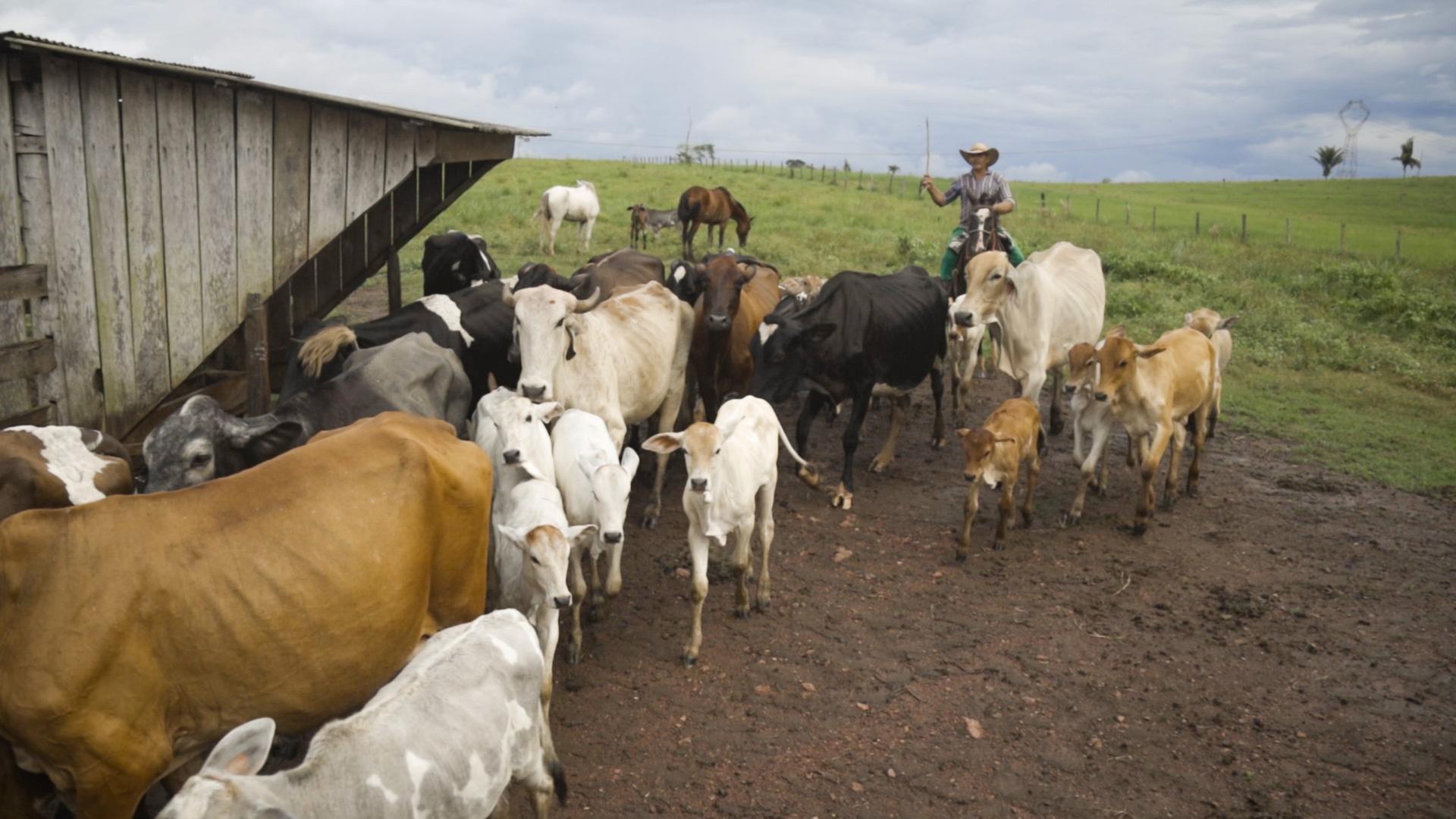Valdemar de Assis corralled his herd of cattle back into their pen after a day in the field.
He’s a family farmer whose land runs alongside the Trans-Amazon highway in the Amazonian state of Pará. The lush forest here was cut decades ago amid a government push to open up the jungle. Assis grew up here on a farm. Today, he said, he has about 300 cows.
He provides milk to the local community. His farm is about 100 acres. That’s small for the Amazon, still considered a family farm. He raises pigs, sheep, chickens, corn and vegetables. Even fish. Assis’ cows are his life.
“It’s so beautiful to see them walking in front of you, and also, knowing that tomorrow, you are going to have a little more income. It’s good.”

Assis said that he makes about 6,000 reais, or just over $1,000 a month. That’s not bad for Brazil. Six times the minimum wage.
Farmers like him are likely to get a boost from Brazil’s new president, Luiz Inácio Lula da Silva (referred to simply as “Lula”). In office for the third time, Lula promised to promote sustainable development for the Amazon — stopping deforestation while at the same time, keeping agribusiness thriving.
This is not an easy task. The Brazilian Amazon is huge and diverse, stretching across nine different states, and deforestation runs rampant.
Agronomist Anderson Borges said that small family farmers in the Amazon are responsible for roughly three-quarters of the products that feed local Brazilians. And as many as 90% of the jobs in agriculture here.
For Borges, sustainable development in areas that have already been deforested can look a lot like Assis’ land. The key ingredient, he said, is raising a variety of crops and animals.
”Having a diversity of many products means you don’t need to intensify the production of just one crop, so you don’t need a lot of pesticides and you don’t need to deforest,” Borges said.
Lula’s past actions on agriculture
During Lula’s second presidential term in 2008, he launched the program, Mais Alimentos, or More Food. The program supported small producers and family farmers with technical assistance, loans and government contracts to increase local agricultural production. Lula has again promised to back small producers.

But in the Amazon, family farmers make up just a small slice of the economy. And they have less than a quarter of farmland in the region. Another group is king: big ag — driven by multinational companies. Brazil leads the world in exports of both beef and soy beans. They are also the top two drivers of deforestation in the Amazon rainforest.
Lula has promised to stop deforestation. It’s something he’s done before. In his first term in office 20 years ago, he enacted new strict regulations, inspections, land registries, and wood- and meat-tracking systems. Those policies helped to cut deforestation rates in half within two years.
“We don’t need to cut down even a meter of forest to continue to be one of the biggest food producers in the world,” Lula said at the COP27 summit in November.
The president wants to roll back deforestation without kneecapping the industry. But that’s not without its challenges.

“You can’t amputate the arm of an important source of production, demanding sustainable practices without offering the necessary elements for them to be implemented,” said André Cutrim an economics professor at Pará Federal University.
Suely Araújo is the former head of Brazil’s environmental protection agency, IBAMA. She said that Lula has to have a two-pronged approach against deforestation: fighting criminal actions like clear cuts and fires, while also supporting the local economy.
“We have to have a regional development plan for the Amazon, which shows that the government wants to generate income for residents of the region, but [which] does this with the forest still standing, with economic options that protect the forest.”
Araujo said that Lula did this well in 2004. And, she said, he’s poised to do it again.The future of the Amazon rainforest largely depends on Lula’s success.
